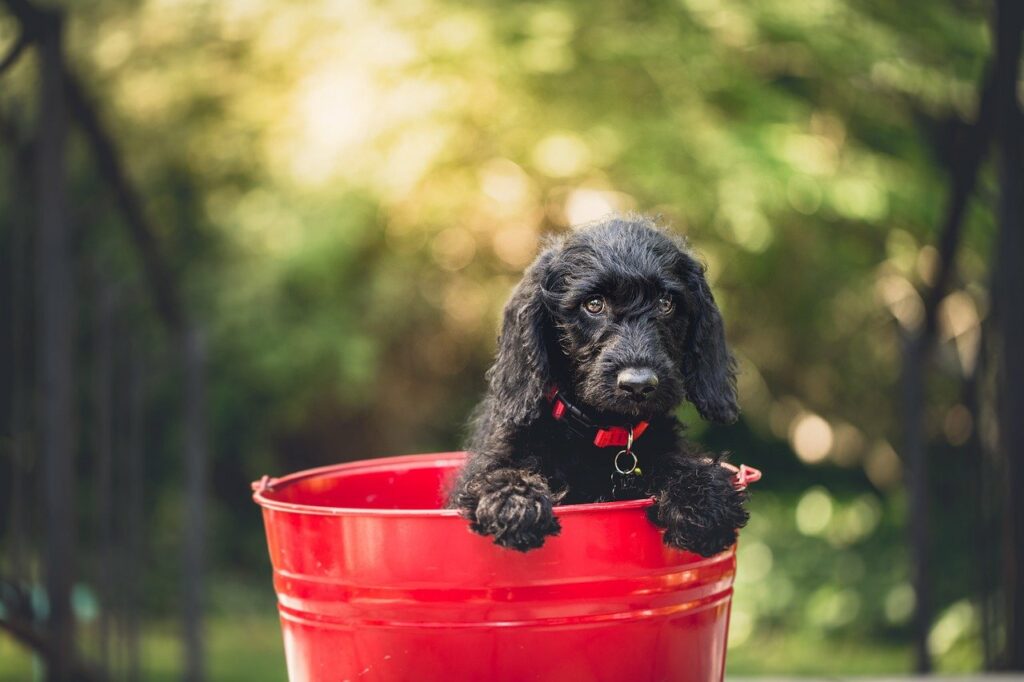There are so many variables when it comes to raising a puppy, especially if you want to do everything right. Here I explain what I consider to be the best way of raising a puppy as a pet dog owner and why this leads to the perfect puppy.
1. Contact a trainer before you buy a puppy

If I could pick the number one mistake I see many clients make, it would be that they don’t have the right dog for their lifestyle at the moment. Now, I’m not saying this with any judgement, as I have made this exact mistake myself! I have a philosophy that dictates that I will help an owner regardless of whether or not I believe they’ve got the right dog for their situation. But sometimes I dearly wish that people had contacted me prior to buying the puppy they’ve chosen because they’re doing everything right but the dog and situation they’ve got at that moment in time is incredibly difficult to set the dog and the owners up for success and simple difference in breed would make a huge amount of difference.
A trainer can tell you whether or not they think the breed is an appropriate choice for you and your lifestyle. They can point you towards breeders they recommend or guide you through the process of finding the perfect breeder who will set the litter up for success well before the puppies go to their new homes. This makes a huge difference. It’s a minefield trying to find a good breeder in today’s day and age and puppy buyers are not given an easy ride with it. Puppy farms are becoming more and more intelligent at passing their dogs off as well loved, cared for family pets. Puppies from less than ideal breeders can have a number of genetic predispositions that can lead to undesirable behaviours or even unsolvable behaviour and/or medical issues.
Trainers don’t have the emotional element of purchasing a puppy when we’re guiding clients through the process. We are genuinely assessing the pros and cons of each individual puppy for you to help set you and your new puppy up for the happiest life we can. We’ll be balancing your needs and your wants with what is realistic and achievable, all without the emotional desire to go for the cutest puppy we find! This is an invaluable sounding board to have, someone who is objective is going to stop you from making a potentially damaging life changing experience.
In my time as a trainer I have been part of experiences where puppies are put down because they badly bred and were too sick physically or mentally to be able to cope with the modern world. Each time is has been absolutely gut wrenching, traumatising and quite frankly depressing for the puppy, the family which often has young children and myself. I desperately want to reduce the number of times I see this happen but often it’s too late by the time I’ve been contacted.
2. Even if you have put a deposit down for a puppy, get a trainer in for a pre-puppy 121 at least a week before the pup comes home

Some of the easiest ways to set puppies up for success can simply involving moving around furniture, having their long-term confinement area set up well before they come home, acclimatising existing animals in the household to the puppy’s items without the puppy also being there and setting your expectations of what will happen when the puppy arrives. This can take some time and there can be an awful lot of information to digest, especially if you have a busy work schedule. A week is sufficient to get all of the equipment you may need, but what if the trainer recommends that someone in the house takes some time off work for the first few weeks the puppy is home. Depending on your work situation that can take a lot more than a week! Ideally, you should contact a trainer the same day you put a deposit down on a puppy and know the date they’re coming home. You also need to remember that you aren’t the only client a trainer may be dealing with and they may have a waiting list for appointments of a week or more!
If you contacted a trainer to ask for help selecting your breed, then breeder then puppy as in the step above, they should have mentioned a pre-puppy 121 and have you booked in already. If they didn’t this may be because they don’t want you to think that they’re a money grabbing trainer – ask them to book you in for one if they didn’t!
3. Contact a Trainer for a 121 when the puppy is home but before they are able to attend classes

There is a lot that can be done as soon as a puppy gets home, especially if you didn’t have a pre-puppy 121. You can also have demonstrations on how to safely socialise your puppy before they’re fully vaccinated (the two are not mutually exclusive!!) and is able to attend classes. This is also another brilliant opportunity to make sure your expectations of the new puppy are realistic. Puppy brain is a real thing and you will appreciate gentle reminders of what you need to be doing and your toilet training/sleeping through the night plan I promise!
Again, if you’ve contacted a trainer before this stage, they may not have tried to book you in for a post-puppy 121 straight away to avoid being seen as a money grabber. Contact them again and ask for a 121 at this stage if they haven’t already suggested one.
4. Book in for classes in advance

Puppy classes are hugely popular and spaces in them are limited. The second you know the date at which your puppy can attend classes (or even if you have a rough idea of a date!) get them booked in for classes local to you. If you wait until your puppy is ready for classes, there may not be any spaces locally or there may be no classes on the dates that you don’t work, etc. It’s well worth knowing, what time and day classes will be, for how long and what to expect in those classes. Getting booked in way in advance also means that you have time to go and watch some classes run by local trainers (any trainer who says no to potential clients coming to watch their classes is probably worth avoiding! Most trainers I know will let you watch for free) to decide which trainer you gel with best, who’s methods you like the most and like the set up of the classes. It also means you’ve been to the venue before you’re due to attend so there won’t be any issues getting lost when you’ve got a squirmy puppy with you as well!
5. Puppy Classes are not the end

Let’s say that you’ve followed all of these steps. You might think you’ve done everything you need to do, and you can skip off into the sunset with your perfectly trained puppy. Well yes, you can. Until adolescence hits. I strongly recommend that you continue training classes with your dog until they are at least one year old. This may seem like overkill but the best way to have a well trained dog is to be proactive and prevent issues from developing in the first place. Having a trainer who you trust and can hold your hand throughout your dog’s development is the absolute best way to do that.
Most puppy classes are 6 weeks and last roughly an hour per session. Do you think that 6 hours is enough to have a well trained, socialised puppy that can be a model member of society? Unsure? Would 6 hours of school be enough for a human child to be a well rounded member of society and learn everything they need in order to be a functioning adult? Of course not I hear you say! Well, it’s the same for a dog as well.
You might think that this is written by a dog trainer in order to get more business and I’m telling you to do all of these things so that I can earn your money. But honestly, this is the best path for a pet dog owner to set their puppy up for success. I’ll happily share the scientific papers with you that provide evidence for this. It is also telling that this will be the path I go down when I get my next dog. I will hire a trainer other than myself to do all of these things and give me objective advice. Even as a fully qualified dog trainer with over 5 years experience these are the steps I would take to set me and my dog up for success.
Really, what is the worst that can happen if you do these things? Money will be spent, but it will be a hell of a lot less money than if something goes wrong and needs fixing later on down the line I can assure you! If you don’t believe me, all of the above steps will cost a total of £619 for pre-puppy advice (which can be upwards of 10 hours of advice), nine one hour 121 sessions including a pre-puppy 121, a batch of puppy classes and three batches of my Canine College improvers class. That works out at £14.07 per hour. My prices for behaviour modification work start at £179 for three one hour 121s and rarely do issues arising from insufficient socialisation take three hours to fix! Invest in your puppy’s future. It will be the best money you’ve ever spent.
